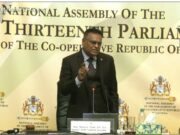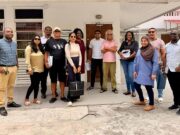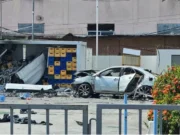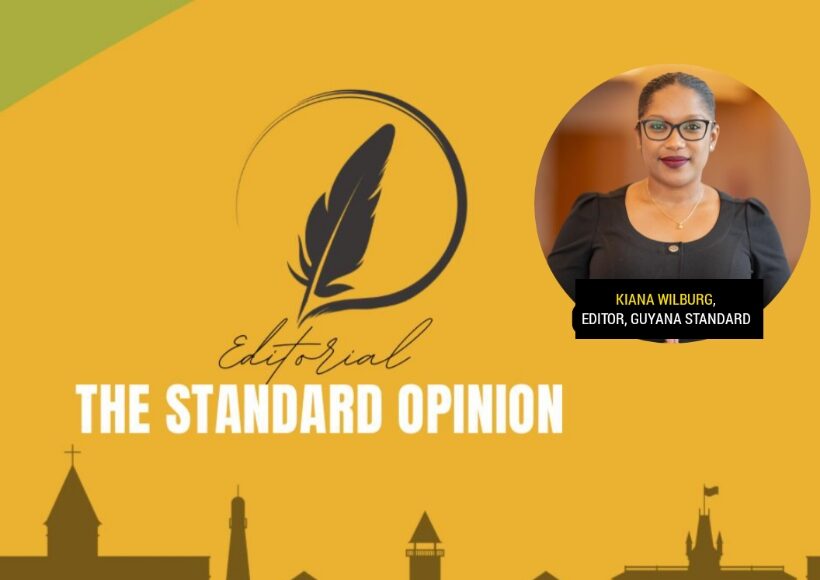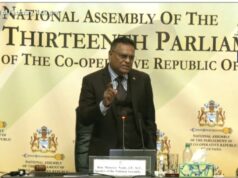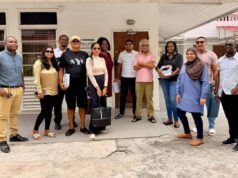By Kiana Wilburg
On August 26, 2025, Teekadai Atiya Solomon was Guyana’s latest victim of domestic violence. She was shot 10 times by her estranged husband, Alroy Solomon. This monster even shot his 10-year-old son, his own flesh and blood, before killing himself. The nation would later learn from an exclusive interview published on Guyana Standard and done by Editor-in-Chief, Abena Rockcliffe, that Atiya was living in hell over the past year. She suffered years of emotional, psychological and physical abuse which close friends knew about but were restrained in their ability to help.
Atiya’s death, an outcome many of her close friends saw on the horizon, reopened an infected wound on the nation’s soul. Could you imagine that it was on August 12, just two weeks before Atiya’s death, that another woman, Bibi Shazida Hanif, was also killed by her partner? Bibi was a 45-year-old woman of Samaroo Dam, West Bank Demerara (WBD) woman. She was fatally stabbed by her ex-husband Martin True, 53, of Parfaite Harmonie.
On July 19, three weeks prior to Hanif’s death, Jenel Pollydore, a 26-year-old teacher from Lower Kara Kara, Linden, was shot and killed by the 21-year-old father of her baby.
Then two weeks prior to Pollydore’s death, Bibi Salima Persaud, a 54-year-old housewife from Soesdyke, East Bank Demerara, was found in a pool of blood with her face bludgeoned, teeth scattered on the floor, and her arm broken. She was killed by her reputed partner, Dinesh Ram who died after ingesting a poisonous substance.
One is left to wonder:
_Aren’t we sick of marching on the spot when it comes to domestic violence?_
_Aren’t we tired of being sick and tired of this horror story being on repeat every two to three weeks ?_
_Does this not have the makings of a national emergency?_
_Which death are we waiting on to be the last straw?_
Atiya’s death has to count for something. We owe this much to her son who must live with psychological scars that may follow him to adulthood. Kenesha Vaughn’s death has to count for something. We owe this much to her family and friends who must live with the painful reality that their ray of sunshine is no more.
Our women, our mothers, our sisters cannot continue to endure the extremities of abuse; of being physically assaulted, raped of their dignity and stripped of their voice before the powers that be unleash the full force of their legislative and institutional artillery.
We cannot continue to wait for the death toll to climb or to wait, God forbid, for one of our own relative or friend to become the next statistic then accelerate our collective action.
I am acutely aware of the fact that the system cannot save every woman from every instance of violence. But goodness, can we honestly look at ourselves in the mirror and say this is the best we’ve got to give?
There is copious research which indicates that economical, psychological, emotional and physical abuse leave lifelong wounds on the mental health of women. So strong is the poisonous web of control inflicted by abusers that women can be frozen by their trauma. This trauma, coupled with many other factors, can severely affect a victim’s ability to escape. And should they muster the courage to stretch their hands for freedom, is the system on standby to take them to safety as quickly as possible?
Minister of Human Services and Social Security, Dr. Vindhya Persaud recently shared with Guyana Standard that the government has implemented a number of mechanisms to address DV over the last five years.
She stressed that there is the 914 hotline, which operates 24/7. Since being operationalized in 2020, it has received close to 60,000 calls, ranging from DV, child abuse, and sexual abuse cases. This is complemented by the iMatter app which gives users direct access to the country’s 914 toll-free domestic abuse hotline and is available on both Google Play (as iMatter) and the Apple Store (as iMattergy). The app has a panic button that can be used by victims. It also allows victims a space to have conversations via text with officers who can provide help.
Apart from these two applications, there are Hope and Justice Centers. “It does not function as a police station but we have police ranks, medical personnel, councillors and other crucial stakeholders who can help victims if they are scared. It is a safe space,” the minister told Guyana Standard.
Another crucial mechanism in place is the Survivor Advocate Programme where an advocate is paired with a victim who is then coached on all the options available to receive support via the court system.
Apart from the foregoing, the official stressed that there are shelters across the country to house women and children, adding that the government provides three months’ rent, free legal support, and counselling.
Dr. Cona Husbands, Manager of the ministry’s Domestic Violence Policy Unit (SO&DVPU), told Guyana Standard that shelters have provided a safe space for women over the past five years. Between 2020 and 2024, five shelters supported 226 women and their children.
She explained that these shelters are located in Regions One, Two, Three, Four, and Six. “Most recently, we introduced rental support for survivors. Instead of staying in a shelter, if they have a place to live, we cover their rent for three months. We have assisted more than 25 women in this way, and we have been doing so for the past three years.”
Dr. Husbands added that the ministry has also partnered with hotels across the regions to provide temporary accommodation in emergency cases.
Another major tool in the government’s framework is the Family Violence Act, passed last year. It provides protection for every member of a family who is exposed to any type of violence.
Training for police ranks is also done through COPSQUAD2000, a partnership of the Human Services and Social Security and Home Affairs Ministries, the Guyana Police Force, and the United Nations Population Fund (UNFPA). The programme which has trained about 2,300 officers, aims to improve officers’ knowledge of the laws governing gender-based violence and to equip them with the training they need to respond to cases of gender-based violence in a way that would safeguard victims.
While these are all commendable steps, one cannot disagree that Guyana needs to accelerate its fight against domestic violence. We can and must do more. We owe it to the families of the deceased. We owe it to those women we can still save.
Perhaps one way in which we can begin to make our country safer is by developing a national strategy to address domestic violence with critical targets and investments across multiple agencies. In 2016, a 10-year national strategy to prevent and counter men’s violence against women was adopted by the [Swedish government](https://www.government.se/contentassets/9f4260f9e1724682aada19ba2dff181c/informationmaterial-swedens-work-to-combat-mens-violence-against-women-003.pdf “”). The strategy applies to the period 2017–2026 and particularly emphasises preventive measures. This strategy has paved the way for a national centre against violence and oppression to be established. One of the tasks of the centre is to regularly investigate the extent of violence and oppression in Sweden and to monitor the development of society’s efforts in this area.
The strategy also sets aside funding annually for preventive measures to combat violence and oppression, particularly in socially disadvantaged areas. The point of this recommendation is to show what “more” at the national level could look like. It could take many forms which can be informed by the voices of our survivors and the concerned public.
As we seek to accelerate our efforts, we must confront the conversation about the re-education of our society, starting with our boys and families that promote their unhealthy expectations in relationships. This very point was underscored at a June 4, 2024 event hosted by the [Commonwealth Secretariat](https://thecommonwealth.org/news/countries-urged-use-tried-and-tested-measures-tackle-gender-based-violence “”) where ministers, lawmakers, and other stakeholders held discussions on gender-based violence. There, it was noted that transforming the attitudes and behaviours of men and boys can start with creating safe spaces where they can explore and discuss issues such as self-care, mental health, vulnerability, and their role in dismantling patriarchal norms. It was also agreed that community-based organizations and decision-makers at all levels are crucial to breaking social and cultural constructs that give way for negative behavioural patterns to flourish.
Whatever steps we decide to take next as a country, the main point of this editorial is to underscore that marching in the same spot, cannot continue to be our default.
Addressing the tragic and pervasive issue of domestic violence in Guyana demands urgent, comprehensive, and sustained action. While existing mechanisms and legislation demonstrate a commitment to safeguarding victims, we have to be honest with ourselves that they are not enough to stem the tide of violence that continues to claim lives and devastate families.
Guyana must develop a cohesive national strategy that prioritizes prevention, education, and early intervention. Our collective responsibility is to ensure that the deaths of Atiya, Bibi, Jenel, and others are not forgotten; that they changed us as a society for the better.

